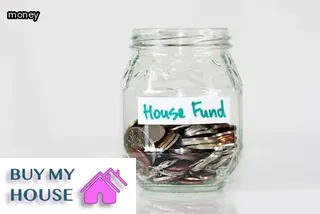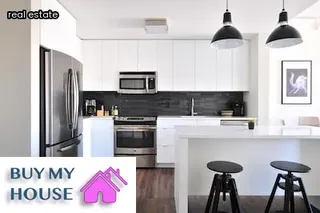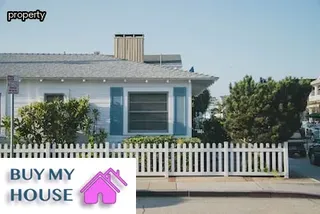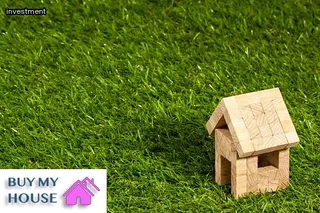No matter what condition your home is in, you may still be able to maximize your return when selling it. When assessing the value of a home in poor condition, there are several factors to keep in mind.
One of the most important is knowing how much repairs will cost and whether they will add value to the house. The marketability of your home also plays an important role; potential buyers might not be willing to purchase a house that needs extensive work.
Another key element to consider when determining the value of a home in poor condition is its location. If your house is situated in an area with good schools and amenities, then buyers may be more likely to overlook any needed repairs or renovations.
Finally, it's important to understand the current housing market and trends so that you can price your property realistically and appropriately for its condition. By assessing all these elements, you can ensure that you get the best return possible when selling a house in poor condition.

When attempting to maximize your return when selling a house in poor condition, it is important to consider the various types of poor conditions that could be present.
This could include broken or outdated appliances, damaged flooring and walls, plumbing problems, peeling paint or wallpaper, water damage, mold growth, cracked windows and doors, faulty wiring or electrical systems, and inadequate insulation.
These issues can significantly decrease the value of the home and cost you money in repairs if not addressed prior to listing.
It is essential to be aware of the potential issues that may exist in order to make an informed decision when it comes time to put your house on the market.
Selling a house in poor condition can be a tricky endeavor. On one hand, the owner may not be able to make the necessary repairs to bring it up to market standard and thus increase the value of their home.
On the other hand, they will likely have to accept less money for their home due to its condition. However, there are some things an owner can do to ensure they get the best return possible when selling a house in poor condition.
Knowing the pros and cons of such an endeavor is essential for maximizing one's return. One major pro is that it could potentially save on repair costs, as buyers might be willing to purchase a home in need of work at a lower price with plans for renovations in mind.
Another pro is that it could potentially attract more buyers; those who specialize in buying and fixing properties could view this as an opportunity to purchase at a discount and then resell or rent out after repairs are done. The main con of selling a house in poor condition is that there could be fewer interested buyers, which could lead to having difficulty finding someone willing to buy at all or getting far less than expected when someone does make an offer.
Additionally, depending on what repairs are needed, it might be difficult or even impossible for an owner to fix them before listing the property on the market. Ultimately, understanding the pros and cons of selling a house in poor condition can help owners decide if this is a viable option or if they should focus their efforts elsewhere.

When selling a house in poor condition, there are a few factors to consider before putting it on the market. Firstly, you should assess the level of repairs that need to be done.
If the damage is extensive, it may be worthwhile to invest in repairs to increase the value of your home and thus maximize your return on investment. Secondly, you should look at current trends in the housing market when pricing your house - if the market is slow, then you may need to lower asking prices for a quick sale.
Thirdly, you should consider hiring a real estate agent who understands how to market homes in poor condition so that you can get maximum visibility from potential buyers. Finally, it’s important to research local housing laws and regulations to make sure your home meets all requirements before listing it for sale.
Taking these factors into consideration can help ensure that you receive the highest return possible when selling a house in poor condition.
When selling a house in poor condition, it is important to evaluate the expense versus return on repairs. There are effective strategies that can help maximize your return while minimizing the amount of money spent on repairs.
One way to do this is to research what comparable homes in the area have sold for and calculate the cost of repairs needed in relation to their value. Consider whether you would recoup the costs of repairs through an increase in sale price or if spending the money would be a waste.
Additionally, focus on making necessary repairs that will add value to your home such as updating plumbing and electrical systems, replacing windows and doors, and repairing any structural damage. Cosmetic upgrades should also be considered since they can boost curb appeal which often leads to a higher sale price.
Homeowners should weigh all these factors prior to making any decisions so they can make sure they are getting the best possible return on their investment.

When selling a home in poor condition, it is important to leverage expert advice in order to maximize your return. Real estate agents who specialize in distressed properties can provide invaluable assistance during the sales process, from helping you set a realistic price to expediting the completion of necessary repairs.
Additionally, experienced local contractors should be consulted to help you identify any major or minor issues that may affect the sale price of your home. A sound understanding of market conditions, such as similar homes on the market and recent sale prices for comparable properties, is also essential when pricing your home for sale.
Finally, taking advantage of online resources can help you find reliable and affordable contractors for any necessary repairs or upgrades needed before putting your house on the market. By leveraging expertise and doing thorough research, you can maximize your return when selling a home in poor condition.
If you're trying to maximize your return when selling a house in poor condition, one of the most important things you can do is enhance its visual appeal. It's important to remember that buyers are often turned off by the sight of major repairs needed when viewing a property, so it's essential to make sure that any defects are hidden or minimized as much as possible.
Start by addressing any cosmetic issues like peeling paint, broken gutters, and cracked tiles. If necessary, you can hire a professional to take care of this for you to ensure quality workmanship.
Additionally, ensure that all surfaces are thoroughly cleaned and de-cluttered so potential buyers can envision themselves living in the home. Lastly, consider staging the home with furniture and decor if it is available; this will help buyers visualize the space and give them an idea of how they could live in it.

When trying to sell a house in poor condition, it is important to prepare yourself and understand the market. Homeowners should research comparable properties in their area and review the average market value for homes similar to theirs.
This will provide a range of prices that the home could potentially be sold for and help the homeowner know what they are likely to get out of a sale. Homeowners should also keep an open mind when negotiating with potential buyers.
Being willing to negotiate on certain aspects such as price or closing costs can help increase the likelihood of a sale. Additionally, homeowners should consider incentives such as offering closing cost assistance or including certain appliances with the purchase of the home.
These strategies can be utilized to maximize return on investment when selling a house in bad condition. It is also important to remain professional during negotiations and stay focused on the goal of getting top dollar for your property.
A real estate agent can be invaluable during this process, providing guidance and advice throughout negotiations and helping you secure a fair deal for your property.
When selling a house in poor condition, it is important to identify potential issues that could impact buyer interest. Some of these issues may include an outdated kitchen, an inefficient heating system, a lack of modern amenities or visible signs of previous water damage.
It is also essential to consider the condition of the roof and foundation, as well as any existing pest infestations. In addition, buyers will likely be deterred by unattractive landscaping or an overgrown yard that requires significant maintenance.
Finally, it is important to take into account the location of the home and potential neighborhood concerns that might affect its value. All these factors should be taken into consideration when attempting to maximize your return when selling a house in poor condition.

Real estate agents are essential for maximizing the return when selling a house in poor condition. They provide invaluable services that allow sellers to get the most out of their investment.
Agents can take into account factors such as the local market, tax regulations, and even legal matters to ensure that the sale is beneficial for both buyer and seller. Agents are also able to negotiate better prices by leveraging their expertise and understanding of the market.
Furthermore, they work hard to identify potential buyers and guide them through the process from start to finish. Real estate agents can also guide sellers on how best to manage repairs and renovations, helping them make cost-effective decisions that will ultimately improve their return on investment.
In addition, agents are knowledgeable about local zoning laws and regulations, which allows them to properly assess what improvements are necessary or permissible before placing a house on the market. All of these services come together to create an effective strategy that helps homeowners maximize their return when selling a property in poor condition.
When selling a house in poor condition, it is important to consider the cost-benefit analysis of making repairs before putting it on the market. Homeowners must weigh the potential financial gains from investing in repairs versus the potential profits from selling as is.
Depending on the amount of repairs needed and the local housing market, there are a variety of options for homeowners to maximize their return when selling a house in poor condition. For example, if repairs are estimated to be expensive but not overly time consuming, homeowners may decide to make these improvements themselves in order to save money and increase their return.
Alternatively, they may opt to provide an incentive to buyers by offering credits or reduced pricing in exchange for doing their own repairs after closing. Additionally, home owners can investigate opportunities such as property flipping or renting out the property that could potentially produce higher returns than simply selling “as is”.
As with any investment decision, homeowners should carefully evaluate all options and determine which best fits their individual needs and financial goals.

When selling a house in poor condition, it can be difficult to know what not to fix and where to draw the line so you can maximize your return. It is important to look at the bigger picture and prioritize repairs that significantly enhance the value of your home.
If a repair is going to cost more than you will recoup, then it might be best not to fix it. Focus on improvements that have a long-term positive effect on the value of the home, such as updating plumbing or electrical systems, replacing windows and doors, installing new energy-efficient appliances, or making aesthetic changes with fresh paint and flooring.
Even relatively simple investments can make an impact when selling a house in bad condition. Spend money where it will give you the most return and consider cutting corners elsewhere if necessary.
Home staging can be a great way to maximize your return when selling a house in poor condition, but there are some advantages and disadvantages to consider. On the plus side, home staging allows potential buyers to visualize the home in its full potential form, instead of focusing on the repairs that need to be made.
This can help make a good first impression and create higher offers. On the downside, staging an already damaged home can be costly and time-consuming.
Homeowners must decide if they have enough funds to invest in such tasks as painting or patching up walls and floors while also needing to factor in the cost of renting furniture and decorative pieces. Additionally, staging a home requires making sure that all areas are clean and organized before potential buyers arrive for showings.
While this process may seem daunting it is still worth considering if you wish to maximize your return when selling a house in poor condition—just be sure to weigh both sides before making any decisions.

When selling a house in poor condition, there are creative solutions to help maximize your return. Whether the damages are structural or visible, homeowners can take steps to ensure their property is attractively presented and priced accordingly.
In some cases, performing minor repairs and improvements may be enough to make a house more desirable for potential buyers. Alternatively, sellers may consider renting the property out until market conditions improve and buyers become more confident in their purchases.
If the house is particularly run down, it could be worth looking into whether local authorities offer any grants or incentives that could help fund certain repairs or renovations. Additionally, hiring an experienced real estate agent who knows how to best market houses with visible damages can be invaluable in ensuring a profitable sale.
Ultimately, by taking all these factors into consideration, homeowners can effectively maximize their return when selling a house in poor condition.
With the current market conditions, selling a house in very poor condition can be difficult. It is important to explore alternative options to quickly sell a house in this condition.
One option is to partner with an investor or real estate company who specializes in buying houses in poor condition. This can often result in a shorter time frame for the sale and might provide you with more money than if you sold through traditional means.
Additionally, you may want to consider renting or leasing your property out until the market improves and it is more appealing to buyers. You could also look into home repair grants or loans that could help cover some of the costs associated with making repairs so that your house would be more attractive when it goes on the market.
Lastly, you should research companies that buy homes as-is or have specialized programs for people needing to sell their homes quickly regardless of condition. All of these options can help maximize your return when selling a house in poor condition, but it is important to do your research before deciding which one is right for you.

In order to maximize your return when selling a house in poor condition, it is essential to scrutinize all legal documents related to the sale. This includes thoroughly reviewing the purchase and sale agreement, title search, deed of trust and other relevant documents.
It is important to understand all of the financial obligations that you are taking on as a seller when listing your home. Additionally, investigate any potential issues such as liens or encumbrances that may affect the transfer of title and make sure all parties involved are aware of these matters prior to closing.
Moreover, familiarize yourself with local laws and regulations that could potentially impact the sale and ensure compliance with these rules. Finally, if needed, consult with an attorney or other professional who specializes in real estate transactions so they can provide advice regarding any legal matters associated with selling a home in need of significant repairs.
Researching why a house does not sell can be an important component of maximizing your return when selling a house in poor condition. Knowing the most common reasons for a lack of interest from buyers can help you to avoid making the same mistakes, or identify potential problems that may need to be addressed prior to putting your property on the market.
Common pitfalls include overpricing, inadequate marketing, and failing to accurately represent the condition of the house in question. Factors such as location, size, and age could also be influencing factors which could be further investigated.
Ensuring that you are aware of any potential issues will allow you to make any necessary changes or repairs prior to listing your property, allowing you to get maximum value for a house in poor condition.

When selling a house in poor condition, the most important factor is to be realistic about the amount of money you can get for the property. Consider hiring a qualified home inspector to assess the condition and provide an estimate of any necessary repairs.
It is also important to make sure your listing accurately reflects the condition of the property - this can help potential buyers understand that they will need to take on significant renovations and adjust their offer accordingly. Additionally, it may be beneficial to create a timeline for when certain repairs need to be completed and who is responsible for them.
Finally, making sure you are working with a reliable real estate agent who understands how to market a property in poor condition can help ensure you get the best return possible.
When selling a house in poor condition, professional photography can be an investment that pays off. High quality photos are essential to attract potential buyers, and homes with major defects require special consideration.
Professional photographers know how to use angles, lighting and styling tricks to hide flaws and emphasize the positive aspects of the property. With their expertise, they can make sure that the home looks as appealing as possible while still showing its true character.
Homeowners also benefit from having access to professional editing services, allowing them to make further improvements without any extra effort. By investing in professional photography for a house with defects, sellers can maximize their return on investment and be confident that they have done everything in their power to get the best possible deal for their property.

Selling a house in poor condition can be a daunting task. Fortunately, UpNest offers an easy solution for getting the best price for your property.
With their team of experienced real estate agents, you can maximize your return and make the process stress-free. UpNest works with local experts to provide tailored advice and guidance on how to increase the value of your home despite its condition.
They also negotiate on your behalf to ensure you get the highest possible price for your home in any market. Their services are designed to save you time and money by helping you understand what improvements will have the biggest impact on resale value, so you can get top dollar for your house.
UpNest is committed to making sure you receive the best return when selling a house in poor condition, so if you're looking to maximize your profits without breaking the bank, they are worth considering.
When selling a house in poor condition, the biggest factor that hurts resale value is the condition of the property itself. Poorly maintained homes often lead to buyers being unwilling to pay more than what they perceive as fair market value.
Issues such as outdated fixtures, broken windows, cracked foundations, mold and mildew, and water damage can all significantly decrease the amount of money an individual can expect to receive when selling their home. Additionally, factors such as location and lack of curb appeal can also hurt a home’s resale value.
It is important to consider all of these things before putting a house on the market if you want to maximize your return.

When selling a house in poor condition, it is important to consider whether or not it is worth investing in repair and renovation work to maximize your return.
If the house requires major repairs that you cannot afford or would take too long to complete, then it may be best to leave them unfinished.
On the other hand, if there are minor issues that could easily be fixed relatively quickly, such as painting walls, replacing floor tiles, or making small structural repairs, these can often have a significant impact on potential buyers and increase your asking price.
Ultimately though, it depends on the individual situation; for some sellers doing a few quick fixes might result in a lucrative return on investment while for others leaving things as they are may be more beneficial.
When selling a house in poor condition, it's important to realize that the market may not be favorable and you could be stuck with a property that is difficult to unload. If your home is put back on the market, this can be a sign that there is an issue with the price, condition or marketing of the property.
It is possible to maximize your return when selling a house in poor condition by improving the home's condition and ensuring it can compete with other properties on the market. In addition, consider pricing your home competitively and having an effective marketing strategy to attract buyers.
If these strategies are unsuccessful and you find yourself with an unwanted property, there are options for reducing losses such as renting out or auctioning off the house.
When it comes to maximizing your return when selling a house in poor condition, one of the first questions many homeowners ask is "How many years should I stay in a house before selling?". The answer to this question varies by individual, but generally speaking, staying in a house for three to five years can offer the best financial return when selling.
This timeframe allows you to make improvements or repairs that will increase the home's value and make it more appealing to potential buyers. During this time, you should also consider taking advantage of tax credits or deductions that may be available for those who own and live in their home.
Ultimately, how long you stay in your house before selling depends on your individual circumstances and goals. However, if you are looking to maximize your return when selling a house in poor condition, staying three to five years is typically recommended.
A: To maximize ROI, it is important to consult with an experienced REALTOR who can help assess the value of the property and determine the best course of action to take. They can also provide advice on how to make repairs and renovations that will generate a higher return.
A: Homebuyers should consider the cost of repairs and renovations necessary to bring the house up to their desired standards, as well as potential legal issues that may arise from purchasing a property in disrepair.
A: The homeowner should consult with a licensed professional and make any necessary repairs or replacements prior to selling the house.
A: It is possible to sell a house in bad condition in a seller's market, but it may require some additional work. If you are willing and able to remodel or renovate the property, it will likely fetch a higher price than if it was left in its current state. However, data suggests that if you invest in remodeling the property, you could potentially make three times as much money compared to selling it as-is.
A: You may be able to get a loan from a lender to cover the cost of repairs needed for your house, such as fixing broken pipes. Depending on the extent of the repairs, you may also be able to secure an FHA 203(k) loan that combines the cost of repairs and the mortgage into one loan.
A: The amount of money you can get for a house in bad condition varies greatly depending on the market, the size of the house, and other factors. It's best to consult a real estate broker for an accurate estimate.